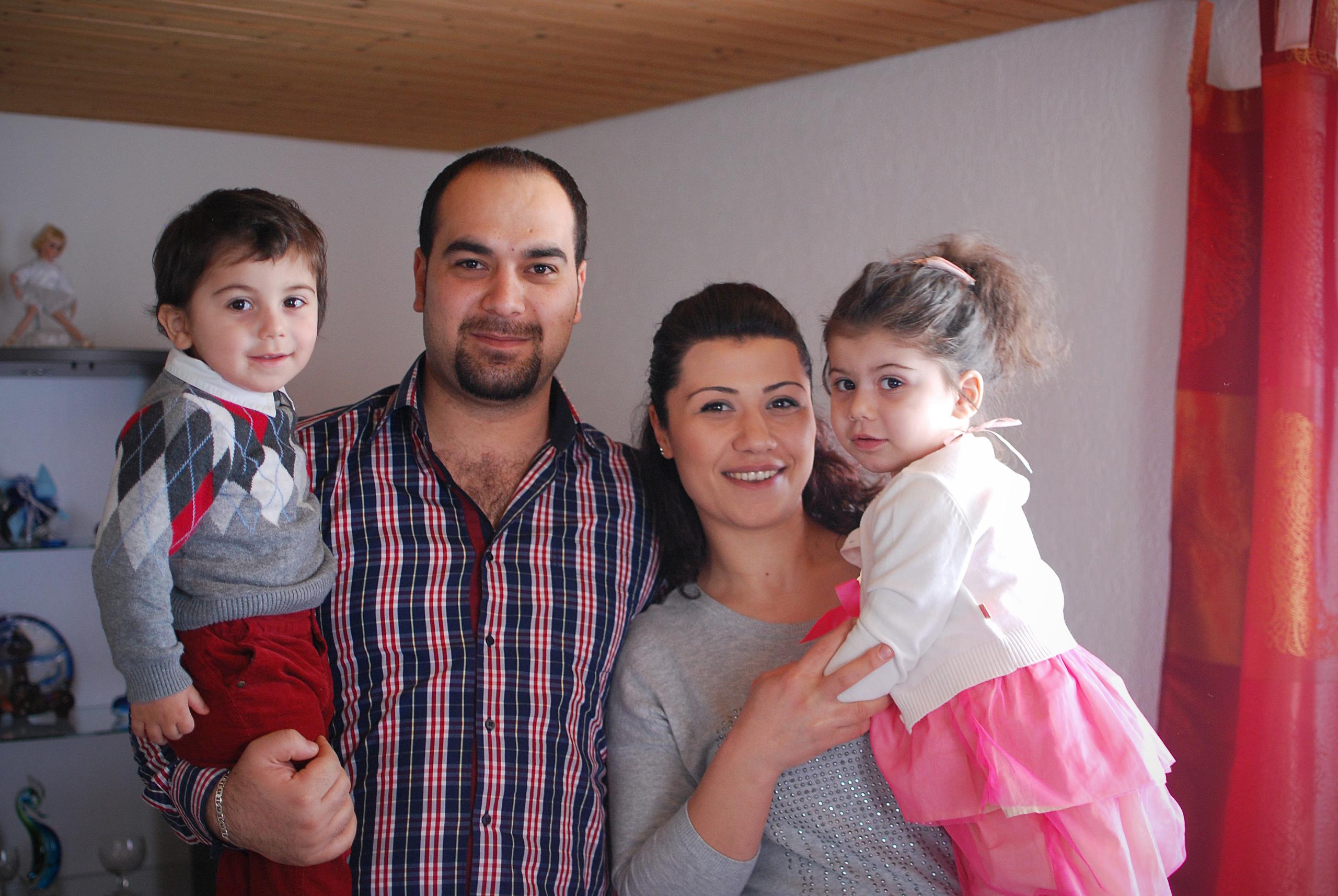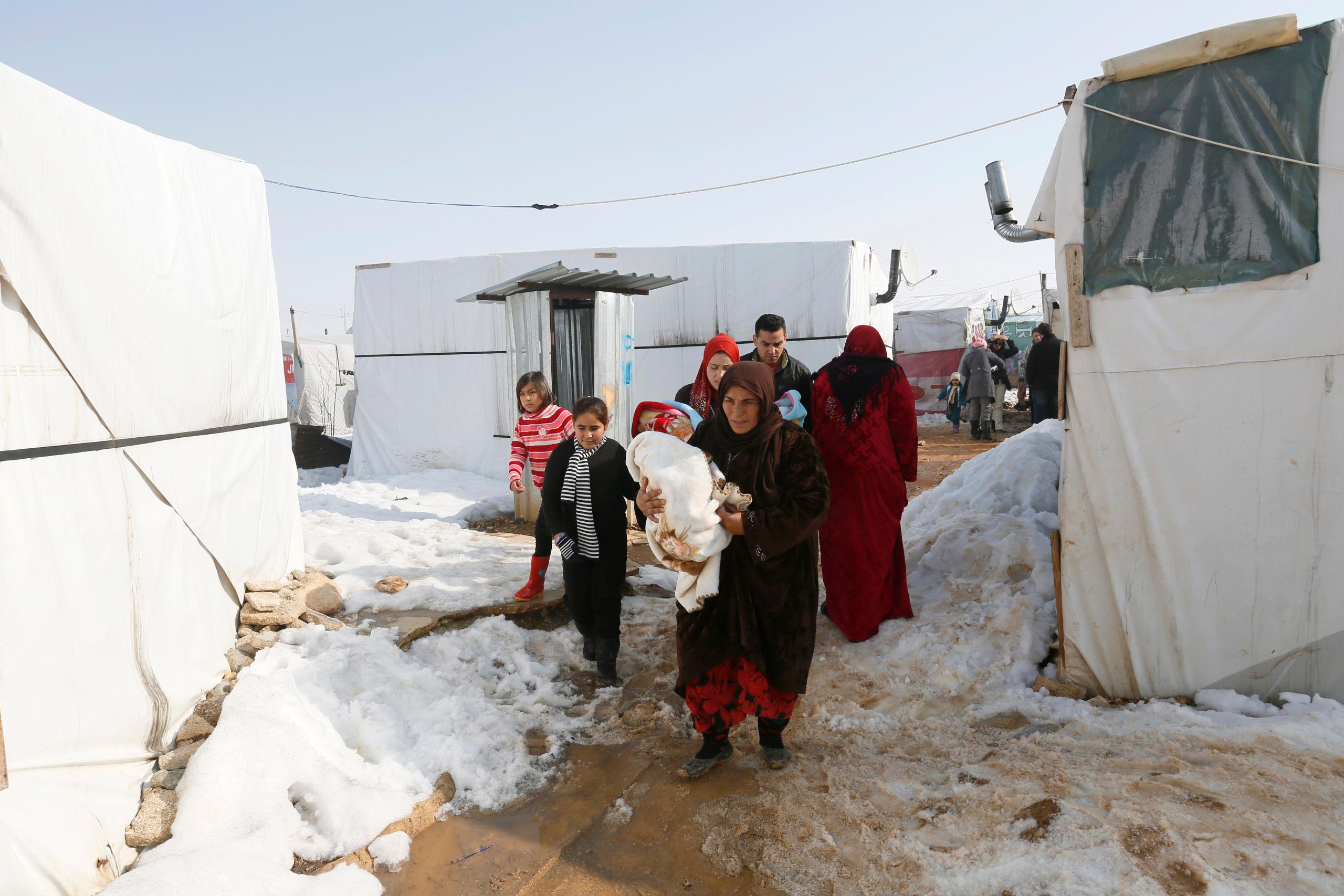Starting over in Switzerland

Jwan Othman and Media Joulak sit down on a black couch in the tidy main room of their flat, overlooking the main street of Rothenthurm.
It’s a beautiful winter day outside and the village is busy as visitors go cross-country skiing in the surrounding foothills of the Alps. The couple’s two-year-old son Tirej, and three-year-old daughter Tireva play nearby, popping by every so often to see their parents and grab a cookie.
Othman and Joulak, both 29 years of age, are calm as they tell the story about life as Syrian war refugees. But the wounds are clearly just under the surface. Worries about family members and friends still stuck in Syria plague them both. Tears silently fall down Joulak’s face.
“I know my children will live in peace and freedom and no one can hurt them,” Joulak says. “But I still think everyday about my family (in Syria).”
Joulak and her husband Othman could not have envisioned the course their lives would take when they married in 2010. Their home was in the city of Aleppo, a town with beautiful mosques and an impressive citadel, Othman proudly reminisces. Joulak worked as a private English teacher following her graduation from the University of Aleppo with an economics degree. Othman worked in accounting and logistics for an export/transport company after studying business administration at the university in Latakia for three years, leaving a year short of completing his degree.
In 2011, as anti-government protests swept through Syria, they welcomed their first child, a daughter, Tireva. The following year, as civil war broke out, they had their son, Tirej. But with no electricity, doctors or medicine, and bombs exploding at random, they soon had to leave.

More
Here, but facing an uncertain future
“The last days we stayed in Aleppo was very, very terrible,” says Joulak, speaking in a mixture of English and German.
Fleeing with her extended family in August 2013, they headed for shelter at a relative’s house in northwestern Syria. From there, they went to Turkey. Eventually, Joulak, Othman and their two children obtained a visa to enter Switzerland and flew to Zurich in January 2014. Othman’s mother had already moved to Switzerland back in 2011 due to political issues, settling in Einsiedeln.
While relieved, the family’s fate was very much uncertain. They moved around, staying two months with Othman’s mother. A brief stay in an asylum shelter in Basel followed, and then yet another move to the Degenbalm asylum centre in the canton of Schwyz for five months.
Despite the unique challenges that come with living with so many strangers, Joulak and Othman take an optimistic view of their time spent at the shelter in Schwyz. Joulak clearly enjoyed helping other residents. She gave beginner German lessons teaching the ABC’s, and held art programmes for the kids each week. Grabbing her phone, she quickly searches for a video of a party at the centre where the kids sang English favourites such as Wheels on the Bus. “The team was very good with us,” Joulak says. “They respected us. They make you feel like you are with your family.”
Four months ago, the family received their B permit as recognised refugees. They moved to a flat in the middle of Rothenthurm, where Joulak and Othman attend German classes each day, taking turns watching the children while the other is at school. While they are making progress learning High German, they find it very hard to understand the local dialect.
They are starting to make plans, talking about their hopes to further their education and then find work in Switzerland. Joulak would like to work for a telecommunications company or a bank. Othman’s dream job would be at the UN, and the two laugh about him having to learn French.
Joulak is pessimistic about the fate of her homeland, figuring the war could last for years. She hopes for a different fate for Switzerland, the country where her children will grow up.
“From my gut, I hope that peace is still here in Switzerland,” Joulak says.

In compliance with the JTI standards
More: SWI swissinfo.ch certified by the Journalism Trust Initiative









You can find an overview of ongoing debates with our journalists here . Please join us!
If you want to start a conversation about a topic raised in this article or want to report factual errors, email us at english@swissinfo.ch.